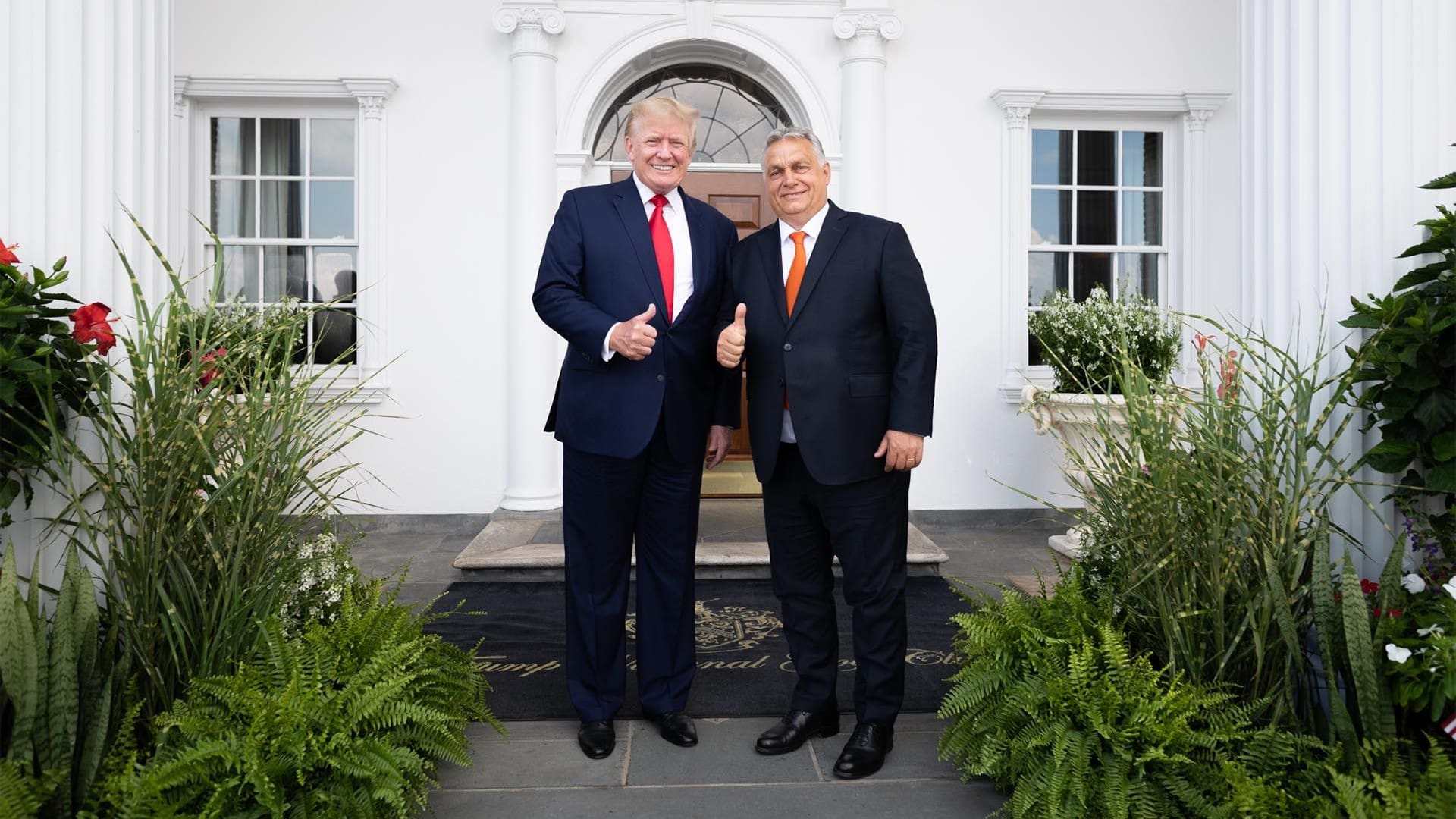The close relationship between Prime Minister Viktor Orbán of Hungary and Former US President Donald Trump has not gone unnoticed by the liberal mainstream press in the United States. It is not surprising, given how apparent the close relationship between the two statesmen is.
After the NATO summit in Washington DC, PM Orbán visited President Trump in his Mar-a-Lago property in Florida for the second time in five months, in an election year in the US. The two have also exchanged quite a few public compliments with each other. Ohio Senator JD Vance, President Trump’s VP pick, has also joined in the show of affection, and has praised PM Orbán and his leadership multiple times in the past.
This opinion piece by the Washington DC-based The Atlantic titled ‘Make America Hungary Again’
is trying to make the case that the United States is in danger of Republicans making it into a ‘Hungary-style autocracy’
if Donald Trump is re-elected for a non-consecutive term this November, which is increasingly likely.
The recently published article cites GOP law- and policymakers referring to PM Orbán’s Hungary as a ‘model for conservative statecraft’. There is a heavy influence on Heritage Foundation president Kevin Roberts’ laudatory statements about the Fidesz government in Hungary, since the Heritage Foundation authored Project 2025. Project 2025 is referred to as ‘the now-famous blueprint for a second Trump term.’ despite the fact that President Trump has completely distanced himself from the manifesto in public.
The poorly written piece by The Atlantic is full of distortions, omissions, and half-truths like that.
When trying to establish the first part of their thesis, that Hungary is an autocracy, they are conveying the idea to their readers that the long-reigning Fidesz party does not actually have high-level public support, they are only winning elections with constitutional supermajorities due to gerrymandering, a term appropriated from American politics, and the covert changes to the election laws.
However, the author does refrain from accusing the Orbán administration of actual mass voter fraud:
‘Today Hungary is in the grips of a near-perfect system of subtle authoritarianism. elections do not need to be nakedly rigged, in the sense of falsifying vote counts, because the deck is so stacked against the opposition that winning is functionally impossible,' the article says.
So they do concede that the results of the last four Hungarian parliamentary elections are valid. The Fidesz–KDNP coalition won those elections by 33.4 percentage points in 2010, 19.3 points in 2014, 29.6 points in 2018, and 19.7 points in 2022, all in multi-way races.
So what is there left to talk about?
The most bizarre attempt at the bending of the truth about Hungarian politics is when the author is trying to argue that the united opposition had popular support in the 2022 election, and only fell short because of administrative hurdles and lack of funding. In reality, the 2022 opposition was led by a man with little national name recognition, Péter Márki-Zay, who kept putting his foot in his mouth during the campaign. He even made the bizarre statement that his coalition is so diverse it involves everyone from Communists to fascists…
The same opposition leadership tried to put a referendum on the ballot in the 2022 election, but failed to even collect the 200,000 signatures required, as a true testament to their lack of popularity and credibility with the Hungarian public.
Robert Farley on X (formerly Twitter): "Make America Hungary Again https://t.co/YFDXdsiRSL / X"
Make America Hungary Again https://t.co/YFDXdsiRSL
As for the seat distribution in the National Assembly not being a close representation of the popular vote result, we have just seen a very egregious example of that. However, since the right-wing populist Rassemblement National got the short end of it, The Atlantic and the rest of the left-wing mainstream media, evidently, have not raised their concerns.
RN got 37.06 per cent of the popular vote, more than 10 points more than any other party, yet only got the third most seats in the National Assembly in the French legislative election earlier this month.
The Danube Institute, a Budapest-based conservative run by the same foundation as the Hungarian Conservative website also gets a ‘shoutout’ in the piece, with the author writing: ‘The relationship is a triumph for Orbán, who has spent millions on lobbyists and organizations such as the Danube Institute to make Fidesz’s case to a global audience.’
The article is written for an American audience, with the umpteenth reiteration of the same message: Donald Trump is a threat to democracy. However, since President Trump has faced 96 indictments from the Biden administration's Department of Justice, was convicted of 34 felony counts in one the most liberal districts in the country, and had to stave off efforts by liberal-led state governments and jurisdictions to remove him from the ballot, this message is likely not resonating with the average independent voter. Since the assassination attempt on his life earlier this month, it likely does not resonate with the average Democratic voter either—which is why the Biden campaign has decided to pull advertisements of the sort.
Even this very article from The Atlantic does not have the same vigour and commitment as if it was written in 2016. Donald Trump is considered the favourite to win this year’s presidential election by mainstream media outlets and bookmakers alike.
Labelling someone an ‘autocrat’ and demonizing someone does get tired after around nine years,
which, again, is also reflected in the sloppiness of the article.
Related articles:








